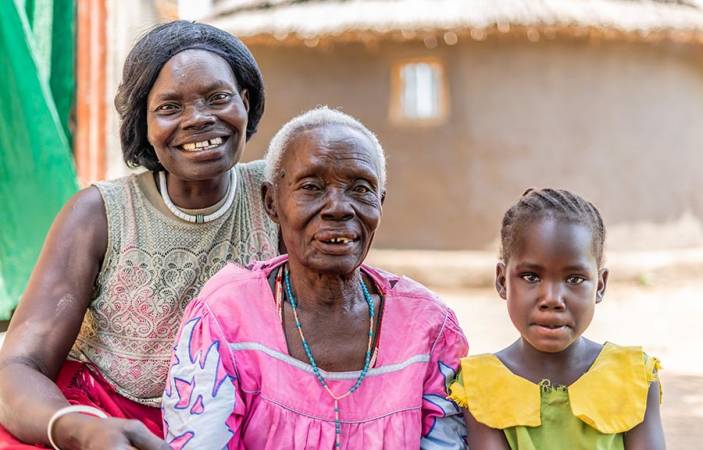
As a representative of HelpAge, I have been privileged to attend each session of the UN Open-ended Working Group on Ageing and witness all the work that goes into the entire process. Every year, civil society organisations, older activists, governments and national human rights institutions engage in discussions and a variety of activities that take us closer to a convention on the rights of older people. But as we go into the tenth session, I wonder if those of us in the UN conference room have ever stopped for a minute to think about what getting older means to ourselves.
When I do, I feel afraid. My fear is not about being older – I want to live a long life – but about the way people will treat me when I am.
I am afraid people will stop listening to me when all they see is an older woman. I’m afraid that if I need support, the things that make me who I am will be ignored, I’ll be forced into a routine I don’t want, forced to eat meat even though I’m a vegetarian, forced to go to bed at 6pm, sedated and wearing incontinence pants because there is no one available to support me to go to the toilet in the middle of the night.
I haven’t been afraid of any other stage of my life, so why my older age? Is it because we live in a world where we are considered less of a human being once we are older?
And this happens in all cultures, as our new report, Living, Not Just Surviving, demonstrates. Older people around the world tell us when we ask them about their rights, whether it’s receiving a pension so low that it isn’t possible to survive on it in Kenya or being laughed at because you want to learn to read or write in Nepal.
I am scared of the indignity and the humiliation of it all.
We have the power to make change happen
But it’s OK to be afraid… and it’s when I accept my fear that I can see it doesn’t need to be like this. We all have the power to make change happen and processes like the UN Working Group are unique opportunities we must capitalise on.
The Working Group starts its tenth session in a stronger position than ever. It is now part of the official UN calendar and is fully resourced. Our work is structured and focused on systematic discussions on how different human rights apply in older age and what the different elements of these rights are. And, for the first time at this tenth session, states are discussing possible agreements on the rights of older people, laying the groundwork for a future convention. Meanwhile, this helps them improve the implementation of their existing human rights commitments to older people.
But much of the work happens between the annual sessions.
Every year older people and civil society organisations meet with their national governments and national human rights institutions. States organise inter-sessional meetings. The coalition of civil society organisations which support a new convention on the rights of older people, the Global Alliance for the Rights of Older People, coordinates training and regional meetings. And the Global Alliance of National Human Rights Institutions has a working group on the rights of older people.
Our commitment and tenacity are vital
That we meet for the tenth time shows the commitment and tenacity of those who recognise that dignity and equality in older age is fundamental to a just and fair society, and something we can no longer ignore.
That we meet for the tenth time in an economic and political climate that is hostile to human rights, cooperation and multi-lateralism is also testament to the strength of this process, a process that is moving inexorably forward towards a UN convention on the rights of older people.
Outcomes from the Working Group will change the lives of older people all over the world. They will also influence our ever-evolving understanding of human rights and what they mean for all of us. The importance of this cannot be underestimated.
So, as we discuss the rights to social security and to education in a conference room in New York over the next few days, we will ask everyone to stop for a minute and really think about why when we are older we are treated unfairly and how we can change this.
Maybe then we all will be a little less afraid.
